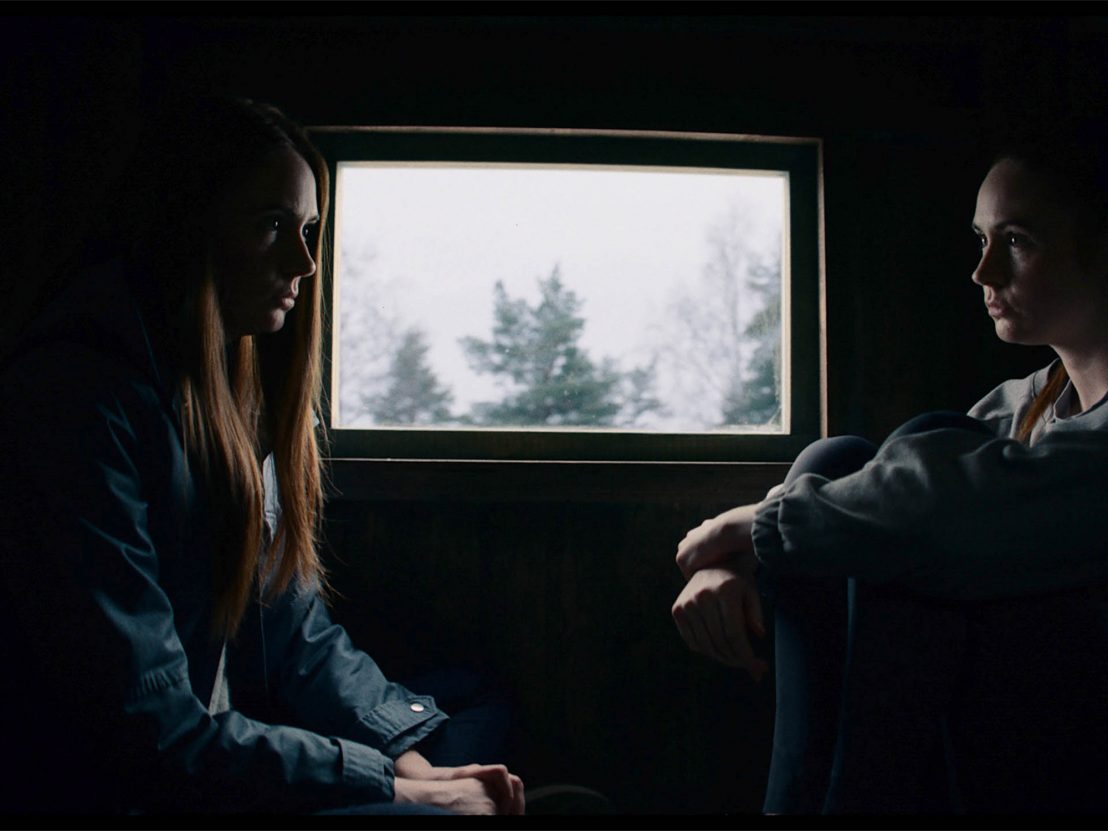
Riley Stearns' latest boasts an intriguing premise and a solid central performance, but its vagueness is to is detriment.
Sarah (Karen Gillan) has a problem – but that’s something of an understatement. After waking up to blood stains soaked into her pillow, she’s learned that she has a rare and terminal stomach disease with a 98 per cent chance of death. “Ninety-eight per cent?”, Sarah wonders aloud to her doctor. Doesn’t that mean there’s still a small, if nearly indiscernible, chance of survival? Yet despite this two per cent margin of error, the doctor calmly assures Sarah that she will die, that there is no hope, and that she should consider cloning herself.
The cloning process is simple and straightforward in the world of director Riley Stearns’ third feature, Dual; then again, so is everything else. As opposed to forcing your loved ones through the arduous grieving process, a clone can be made readily available during the period of time that you’re still alive.
While you relish in the precious few moments you have left on this earth, your clone acts as your shadow. They learn who you are and how you are, soaking up “you” like a sponge so that they may become the best version of you they can possibly be. Sarah’s clone – who sports blue pupils instead of Sarah’s natural brown – is not necessarily interested in becoming Sarah. Sarah’s clone wants to become her own person, find her own interests, love Sarah’s family the way she wants to love them.
Having expertly avoided the sophomore slump with his sharp, eccentric black comedy The Art of Self-Defense just two years ago, Stearns’ third film is a whimper by comparison. But the writer/director continues his fascination with death-by-combat in Dual, as we learn that the film’s title is something of a double entendre. Sarah discovers that she has beaten the odds, but now she has to beat her double.
In this version of a dystopia, a person and their clone cannot be alive at the same time and, naturally, duels to the death between doubles and originals must be government mandated if such a scenario occurs. Sarah decides that she wants to live, so she gets herself a trainer (played by Aaron Paul).
It’s a little hard to not compare Stearns’ last film with his now most recent, both centred on defensive (and, in this case, offensive) combat training, both fixated on what it means to be at odds with oneself as manifested through physical contest, both provoking ready-made comparisons to stilted, matter-of-fact dialogue performances from filmmakers like Wes Anderson or Richard Ayoade.
Stearns’ approach to this latter feature is more of a hindrance in Dual, as Karen Gillan’s commitment to being as monotone and unemotive as possible becomes grating in a very short amount of time. While capably directed and often charming, there isn’t quite enough meat on the film’s bones. Not only are the narrative and character arcs underdeveloped, but Stearns takes on a muddled approach to his own text, having already exhausted similar themes on his previous, far more dynamic film. Thus, Dual is left so unwilling to interrogate itself it’s as if it hopes that perhaps its audience will fill in the blanks for it.
There is clearly something meaningful that Dual is trying to expound upon the self. Sarah’s clone is intent on becoming her own person, but she is still very much a version of Sarah. That is, the version of Sarah that Sarah isn’t. The version that is more assertive and confident in her own skin, more adored by her boyfriend, Peter (Beulah Koale) and who dotes on her mother more attentively.
If this newer, better version of Sarah overtakes the old version, it’s as if Sarah never even existed. As if her old life was meaningless. But potentially interesting ideas of waging a war with the self only ring hollow in a film that reads as intentionally, woefully vague. In the end, the only duel in Dual is the one between the script and its audience.
Published 21 Jan 2022

By Anton Bitel
Richard Ayoade branches out into steampunk paranoia with this feisty and funny adaptation of Fyodor Dostoyevsky’s 1846 novella.

Jake Gyllenhaal sees his double and enters a vortex of wanton weirdness in this cold, experimental drama.